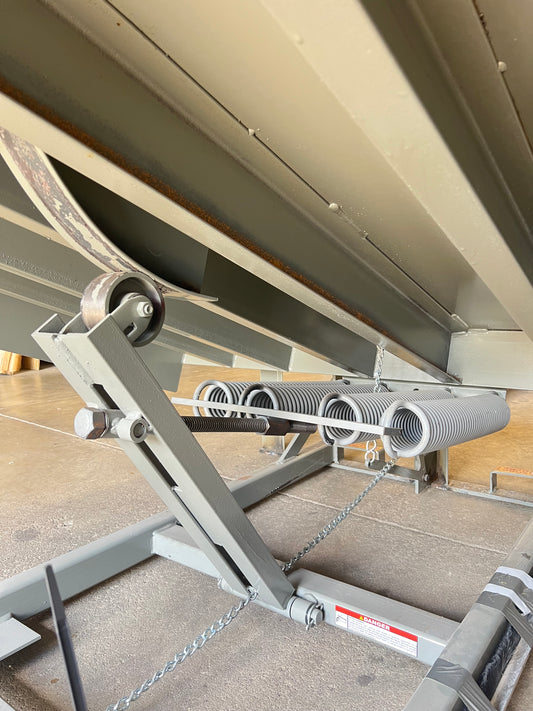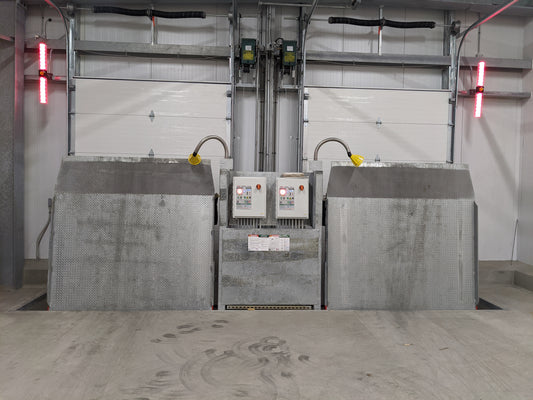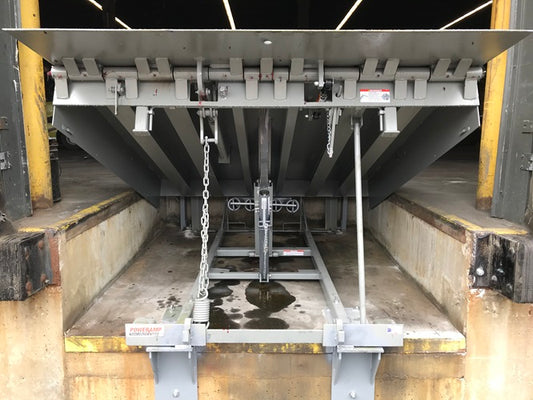A warehouse dock leveler is used in loading and unloading environments as a way to access floor-height trucks or trailers at a warehouse or facility. Industrial dock levelers make this routine task safer and more efficient by reducing worker stress and providing a pre-engineered system that is widely accepted across any industry. They are offered in a few different types of operation and while all perform the same purpose, there are key differenced between them.
Operation
Starting with the most obvious difference is the operational components of a dock leveler. As the name implies, a mechanical dock leveler uses mechanical components to move the dock plate into and out of position on a truck or trailer. This includes
lifting springs, pull chains, and ratchet and pawl teeth to keep the deck from rising, among others. The user needs to manually engage the deck and lower it onto the trailer. A hydraulic dock leveler uses a hydraulic system to raise and lower the deck and operate the lip plate via push-button control, which requires electrical power.
Usability
With an operational difference comes user friendliness and safety. A mechanical dock leveler requires manual input and engagement from the dock worker, which over time can cause fatigue. It is also crucial for the power of a mechanical dock leveler to be adjusted properly to allow for an easy walk down of the deck, which is sensitive to adjustment and causes more frequent maintenance. A hydraulic dock leveler is operated with a push button which is the easiest form of operation. They offer precise positioning and often include a velocity stop preventing the deck from freefall without a trailer. This enables easier and safer loading and unloading processes.
Capacity and Environment
Mechanical dock levelers are designed for light to moderate load capacities in a less demanding environment. They are often found in retail or light commercial environments. A hydraulic dock leveler offers heavier load capacities and are the ideal solution for high-frequency use and demanding applications. They are also great for power and safety integrations with other equipment at your dock including dock doors or trailer restraints.
Maintenance and Durability
A mechanical dock leveler has more moving parts and ware items that are prone for replacement and a higher frequency of maintenance and adjustment. A hydraulic powered dock leveler requires a similar maintenance interval, but instead of wear components they require periodically checking the fluid level and lubricating moving components. This will result in a lower overall cost of maintenance. Hydraulic dock levelers can also handle constant use effectively.
Cost of Ownership
Mechanical levelers offer a lower upfront commitment as they do not require power or an expensive hydraulic system for operation. They do, however, have more expensive ware items that require more attention to maintenance. A hydraulic dock leveler has a higher upfront cost that requires an electrical power source. They are the suitable choice for a demanding loading dock or heavy-load application.




